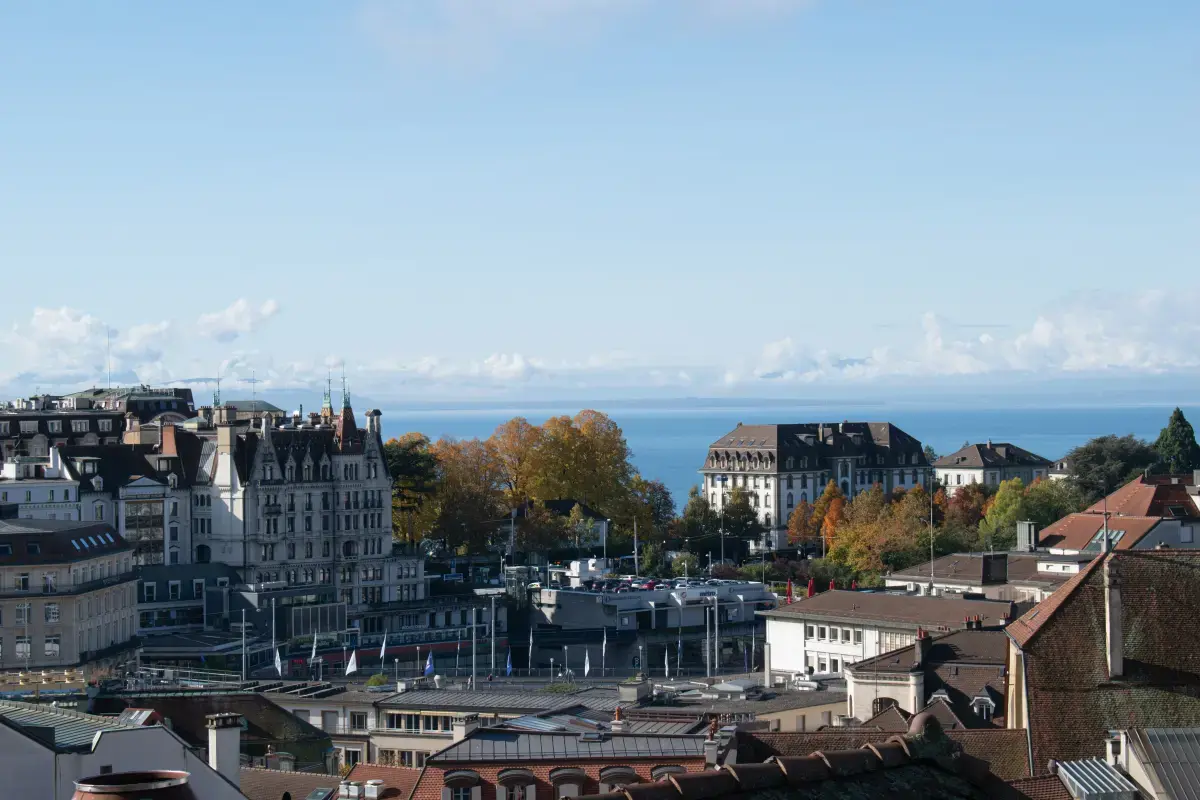- Anesthesiologist
- Obstetrician and Gynecologist
- Psychiatrists
- Surgeons
- General Internal Medicine
- Physicians
- Ophthalmologists
- Orthodontist
- Product Manager
- Artificial Intelligence & Machine Learning (AI/ML) Engineer
- Full-Stack Developer
- Cloud Architect
- DevOps Engineer
- Blockchain Engineer
- Software Architect
- Big Data Engineer
- Internet of Things (IoT) Solutions Architect
- Data Scientist
- Cyber Security Architect
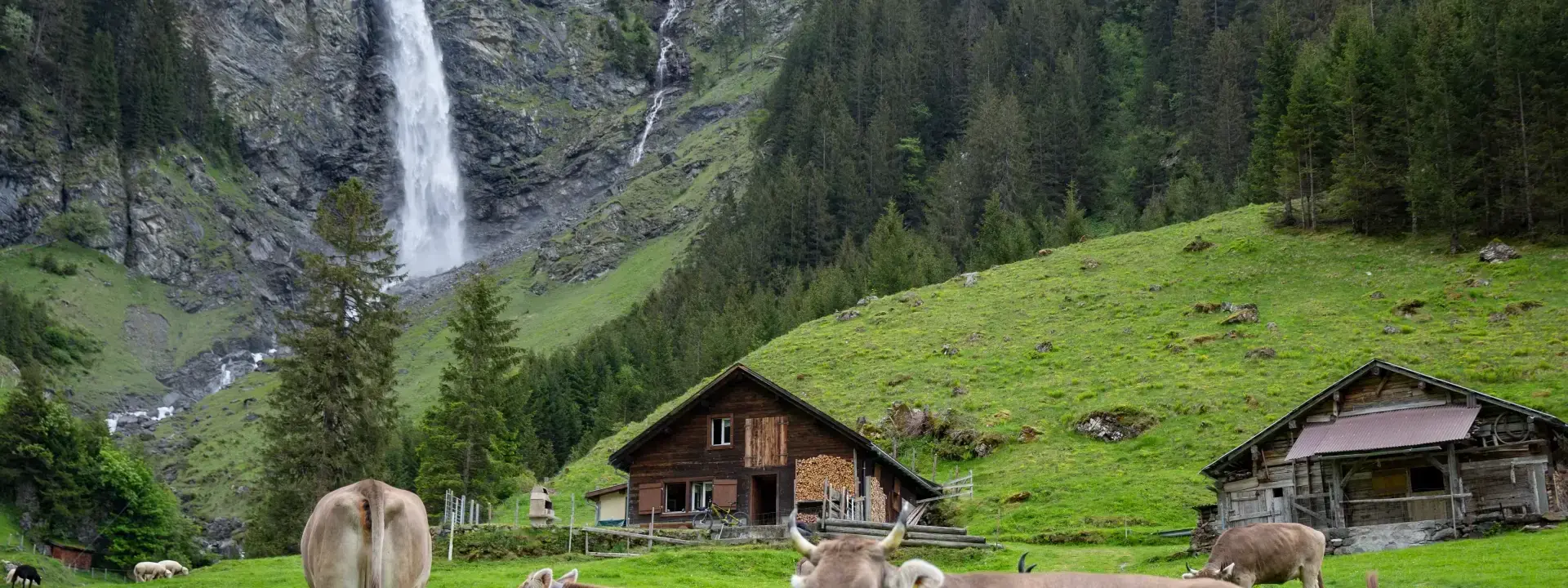
Moving to Switzerland in 2025
Step by step guide on migrating and relocating to Switzerland in 2025?
Use our Guide to find all the moving information you may need if you are thinking of moving or working in Switzerland.
People move to Switzerland for a variety of reasons. The country offers excellent quality of life, as well as very high living standards, with opportunities for career development, economic stability and a host of other benefits. Additionally, Switzerland boasts a central location in the heart of Europe and provides easy access to many other countries. Switzerland also has a high level of safety and security, making it a great place to live. The country has strong laws to protect its citizens and employees, which makes it a safe place to work and live. The country also has a sound infrastructure, with an excellent public transportation system and an advanced healthcare system. As an affluent nation, it has plenty of top-notch restaurants and entertainment venues, as well as education and cultural opportunities. Switzerland is also well-known for its banking and financial sector, which makes it a great location for investment and for those wishing to start a business. The country offers favorable tax regulations and incentives, which make it a very appealing place to relocate. It is also one of the world’s top tourist destinations, so it offers a lot of opportunities for people to enjoy the sights and culture. Finally, Switzerland is known for its uniqueness and one-of-a-kind charm, which can be difficult to find in other countries. It is an incredibly diverse and multicultural nation that offers something for everyone. From the Alps to its charming villages, to the vibrant cities and the peaceful countryside, Switzerland has something for everyone.
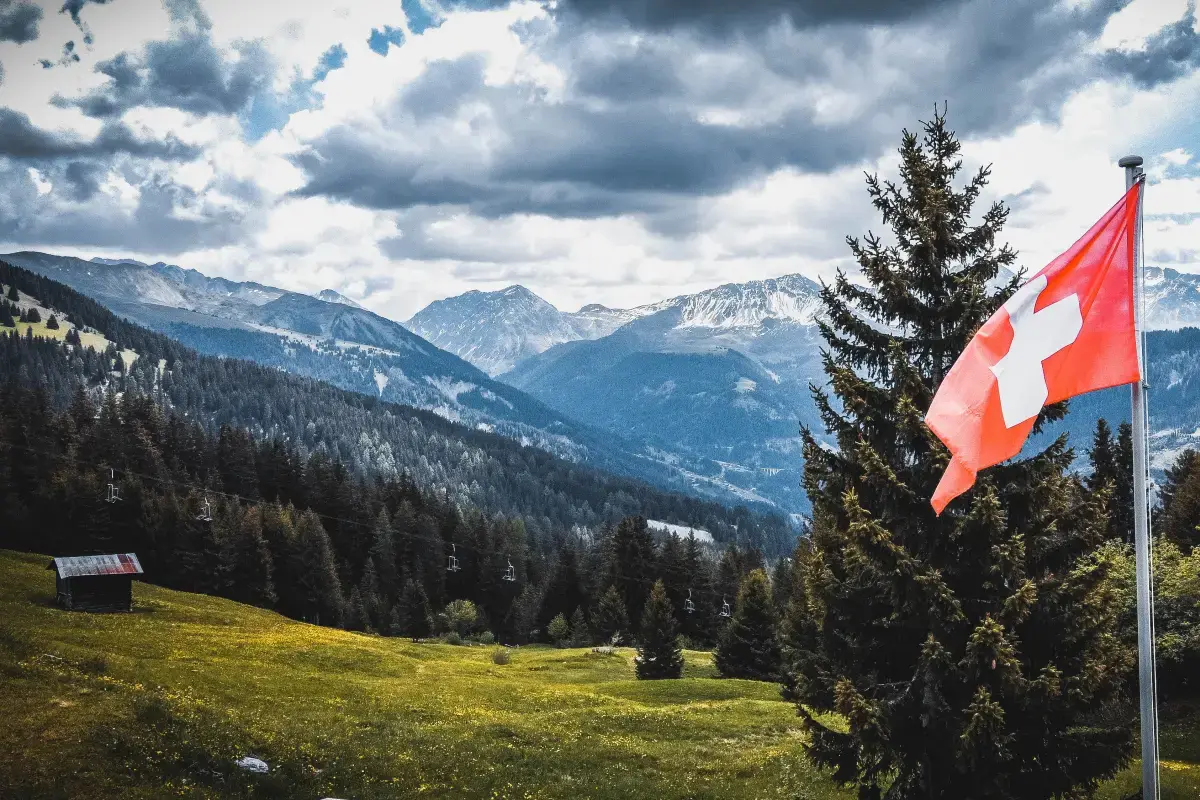
Gigs
Cost of Moving to Switzerland
1. Visa and Immigration Costs: Depending on your nationality and the type of visa you require, the costs associated with obtaining Swiss residency can range significantly. To apply for a Swiss residence permit you need to pay a flat fee of 60 CHF (around $63 USD). Besides the fee, you may also need to pay for documents required to process your visa, such as birth certificates, proof of finances, and passport photos. Additionally, be aware that any major countries may also require you to obtain a visa to visit Switzerland and will charge their own set of fees. 2. Flight Costs: The cost of a one-way flight to Switzerland from the U.S. can range from $400 to $1,400 or more depending on the season and airline you choose. 3. Travel Insurance: Obtaining travel medical insurance for Switzerland is heavily recommended. Travel insurance will protect against unforeseen medical emergencies, cancellations, loss of baggage, and other unexpected costs that could crop up during your time abroad. Travel insurance is an essential part of international relocation, so be sure to obtain a policy before you travel. 4. Accommodation Costs: Finding long-term accommodation in Switzerland can be expensive, especially in the downtown areas of major cities. Furnished apartments often come at a premium, while renting an unfurnished place is cheaper but requires you to buy all your furniture and appliances. Many expats opt to rent a room within a shared accommodation or student dormitory as a lower cost alternative. 5. Cost of Living: Switzerland has a high quality of life, but the cost of living can be expensive in many cities. The average cost of living in Switzerland is around 10000 CHF per month (without rent), which is around $11000 USD. Prices for groceries, utilities, and other daily necessities may be higher than you’re accustomed to in the U.S. 6. Taxes: Taxes in Switzerland are relatively high, with a top marginal tax rate of 11.5%. Depending on your residency status, you may be expected to pay income, capital gains, and real estate taxes. Additionally, Swiss citizens who hold dual citizenship may be liable for additional taxes depending on their country of origin. Therefore, it’s important to consult with trusted tax professionals before relocating to Switzerland.
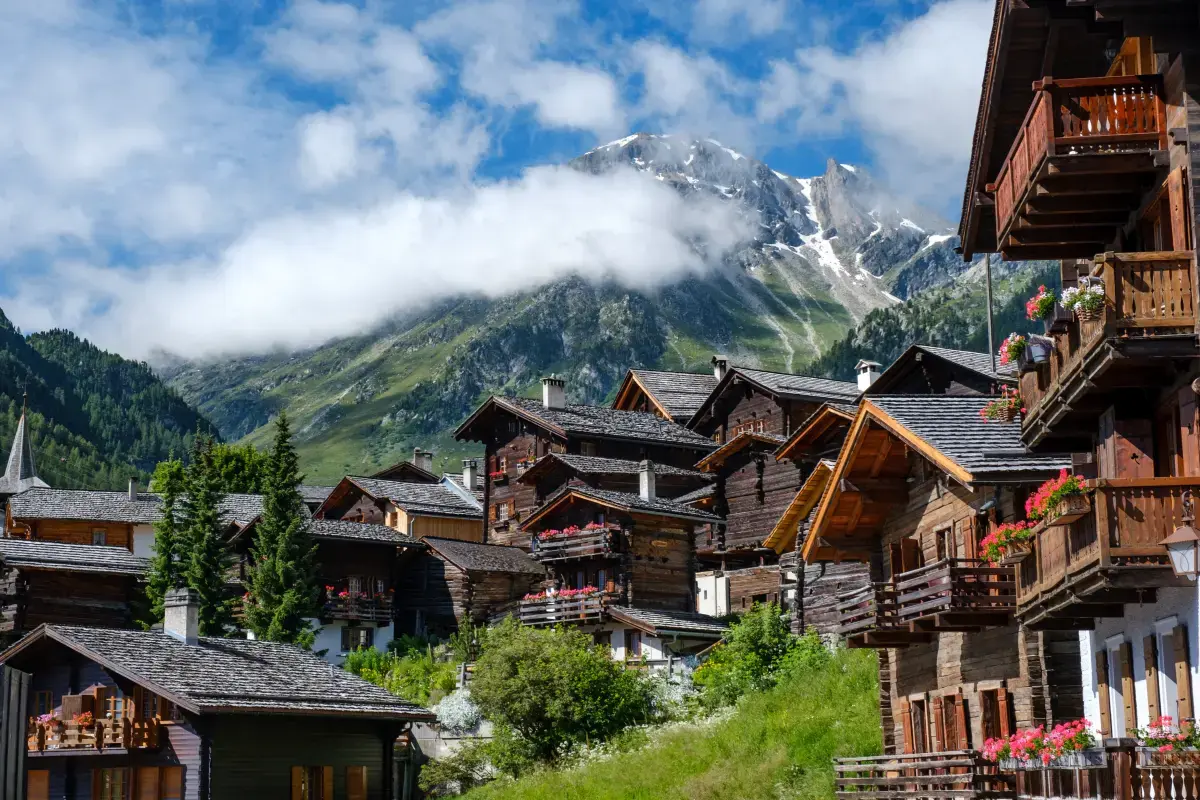
Jobs
Best Jobs in Switzerland
The most popular jobs migrants moving to Switzerland apply for are IT-related positions, engineering jobs, finance and banking positions, and skilled manual labor. Within the IT sector, the most popular roles are software or network engineers, web designers, computer system analysts, and software developers. These roles typically earn between CHF 70,000 to CHF 100,000 depending on level of experience and expertise. Engineering roles are also popular in Switzerland, with positions such as telecommunications engineers, civil engineers, and chemical engineers being particularly sought after. Salaries for these positions range from CHF 66,000 to over CHF 100,000. The banking and finance sector is also a magnet for many migrants; popular roles include financial analysts, investment bankers, and financial controllers. Salaries range between CHF 85,000 and CHF 120,000. Many migrants are also attracted to Switzerland due to its thriving manual labor sector, which offers positions such as machine operators, construction workers, and mechanics. Salaries for these roles typically range between CHF 50,000 and CHF 70,000.
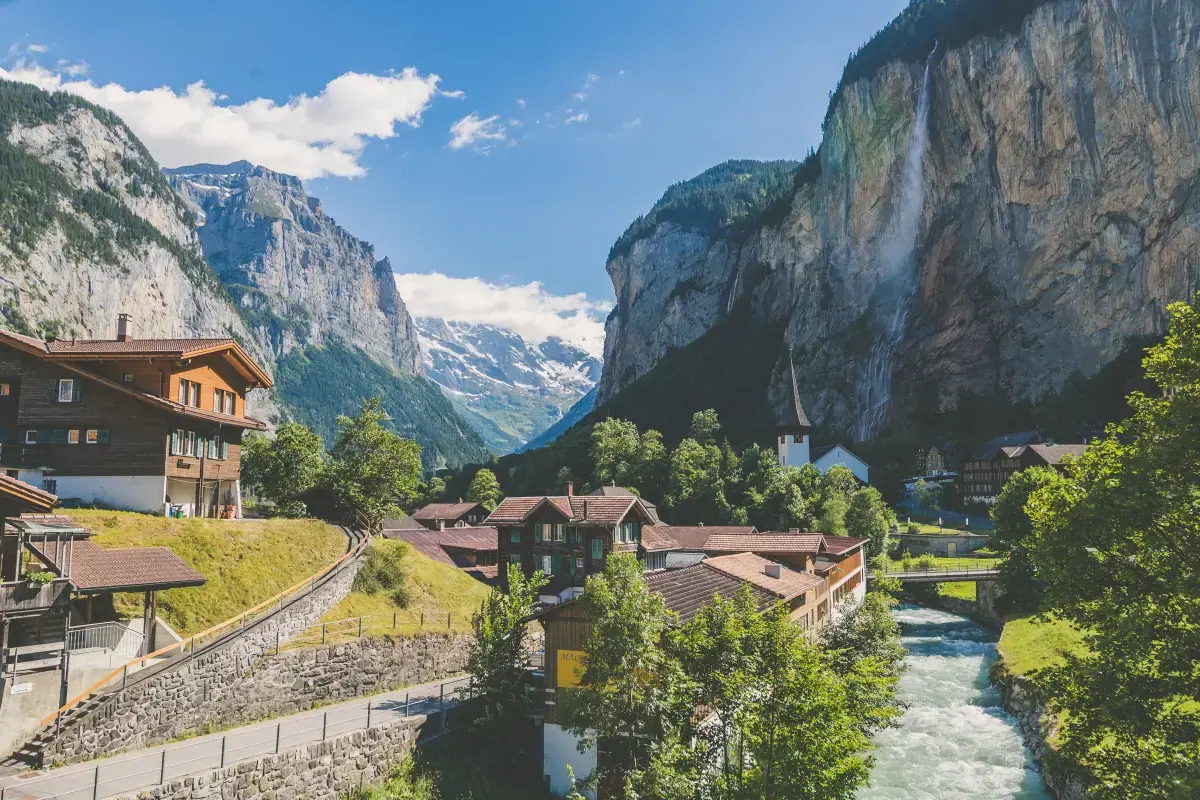
Volunteers
Weather in Switzerland
The climate in Switzerland is largely governed by its geographic location in the heart of Europe. Due to its mountainous geography, it has a diverse range of climates, from a cold alpine climate in the mountains to a temperate continental climate in the lowland plains. Switzerland has four distinct seasons with significant temperature and precipitation changes. Spring is the wettest season and temperatures gradually rise during this period. Summers are generally warm and sunny with temperatures reaching the high 20s°C (80s°F) in the lowlands and mild temperatures in the mountains. Late August is the warmest time of the year. Fall is a pleasant season with milder temperatures and some rain. Winter brings cold temperatures, snow, often below zero degrees celsius (32F) in the lowlands and significant snowfall in the mountains. In the higher alpine regions, snow starts in October and can last into early summer. The infamous Föhn wind can also occur during periods of high atmospheric pressure, bringing warm air from the south and creating excessively mild and dry conditions in the valleys. Overall, Switzerland is a temperate country and enjoys plenty of sun throughout the year. In the summer, clear skies and sunshine reign supreme, making it an ideal destination for outdoor activities.
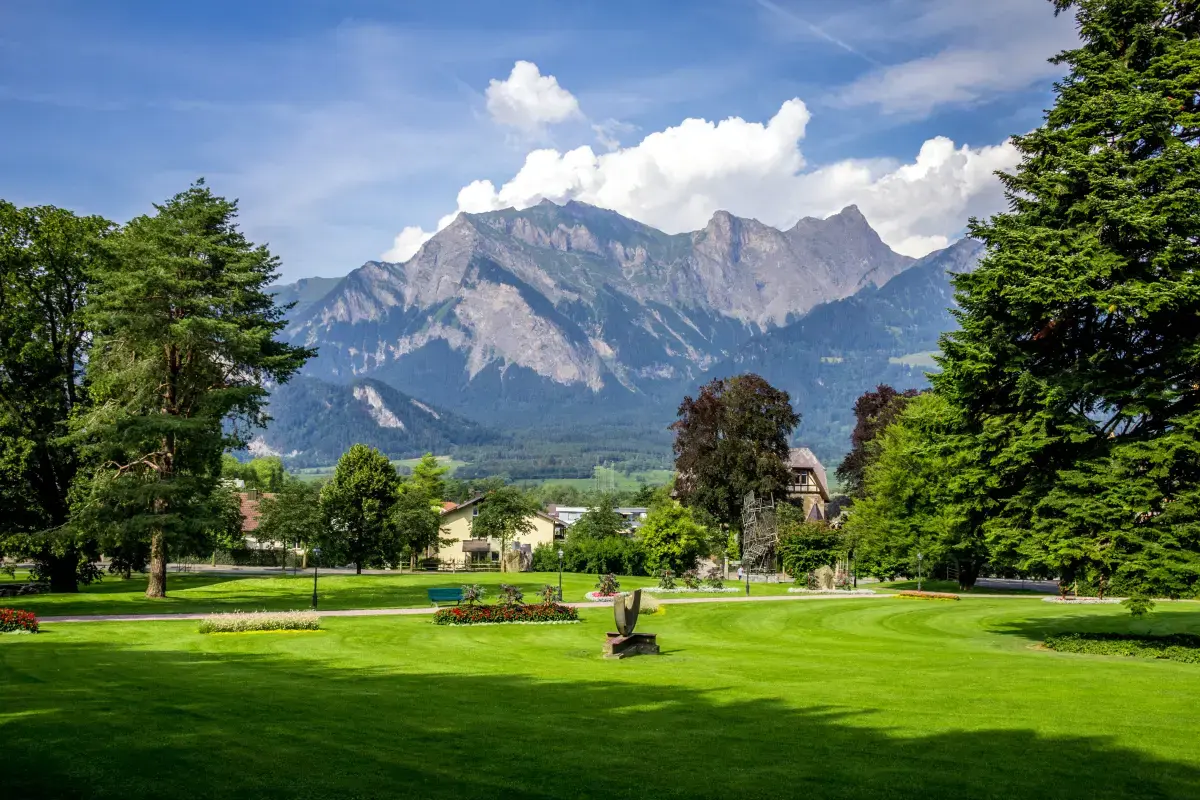
Promote
Tax & Welfare System in Switzerland
The Swiss tax and social welfare system is administered by three federal agencies: the Federal Tax Administration, the Confederation Social Security Office, and the Federal Social Insurance Office. The Tax System The Swiss tax system comprises both direct taxes and indirect taxes. Direct taxes include income tax, capital gains tax, inheritance and gift tax, and corporate tax. Income tax is a progressive tax that is levied on the income of individuals in Switzerland. Progression is a system where people with higher incomes pay a higher rate of tax. In Swiss taxation, income is taxed as a lump sum and the taxpayer does not differentiate between income from employment and capital income. Capital gains tax is a tax on profits from the sale of investments, such as shares, bonds, and property. Inheritance and gift tax is levied on the transfer of assets upon death or as a gift. Finally, corporate tax is a tax on the profits of companies operating in Switzerland. Indirect taxes are collected by the federal government, cantons (states), and municipalities. These include value added tax (VAT), stamp duty, taxes on motor vehicles, spirits, and tobacco, as well as on insurance premiums and real estate transactions. VAT is a tax on goods and services and must be added to the value of any item sold in Switzerland. Social Welfare System Switzerland provides a comprehensive social welfare system that includes social insurance, government assistance programs, and employment services. Social insurance includes old age and survivors’, disability, unemployment, and health insurance. Government assistance includes social assistance, housing assistance, and a variety of services for families, disabled people, and other vulnerable individuals. Employment services include job-training and placement programs, as well as subsidies for employers who hire jobseekers. In addition, Switzerland provides for a basic minimum income for all citizens. This is known as a “guaranteed income” and is paid to those in need who have no other means of subsistence. Additionally, the Swiss government provides additional subsidies to families with children, students, and retirees.
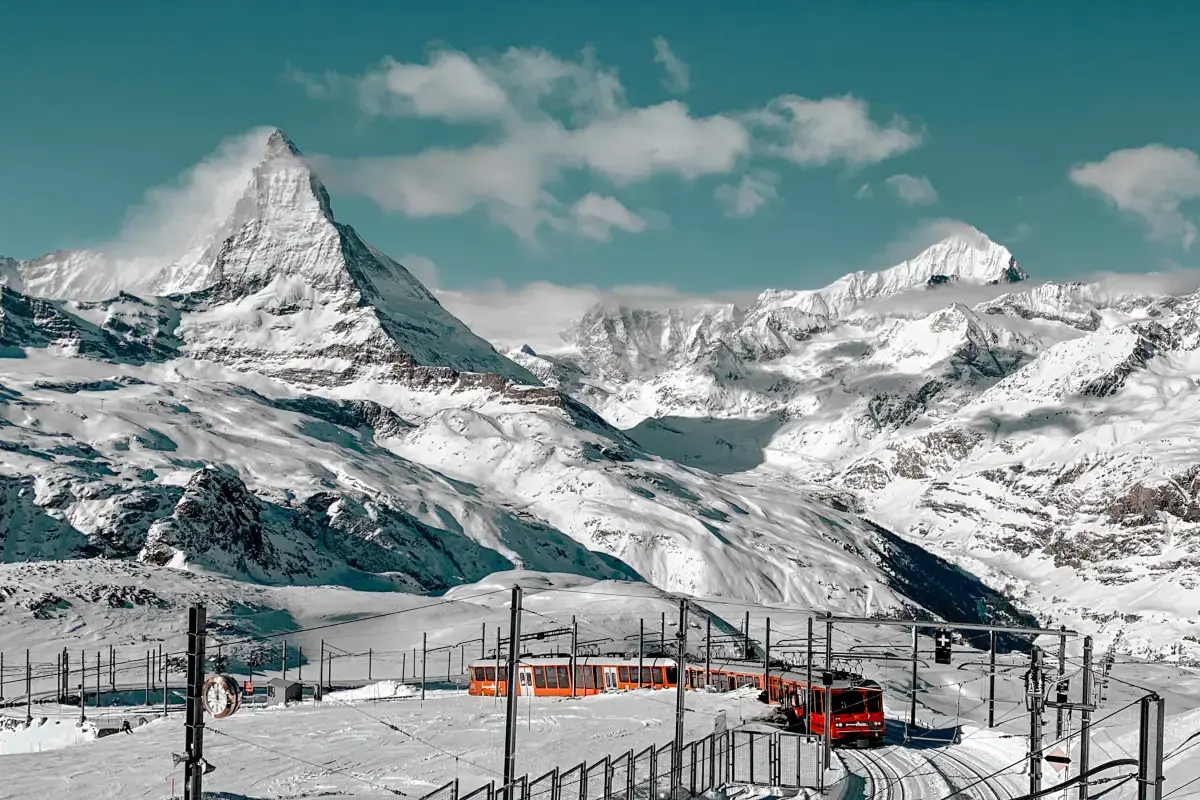
Holidays in Switzerland
Switzerland is a country located in Europe. It is a blend of cultures, religions, and languages that make it very unique. As such, it has its own set of national holidays, in which the people of the country are able to celebrate and observe their traditional customs and beliefs. The most important national holiday in Switzerland is Eid al-Fitr, which marks the end of the Islamic holy month of Ramadan. This festival is celebrated by Muslims all over the world, and it marks the beginning of the new Islamic year. The Swiss National Day is celebrated on August 1st and it marks Switzerland’s declaration of independence from the Austrian-based Swiss Confederacy in 1291. It is a day of celebration involving fireworks, the singing of the Swiss national anthem, and the parading of flags. The Swiss Constitution Day, held annually on September 1st, commemorates the adoption of a new Swiss Constitution in 1848. It is held with great enthusiasm across Switzerland and focuses on the celebration of freedom, independence and democracy. The Assumption Day, held August 15th each year, is a Catholic holiday celebrating the Virgin Mary being taken into Heaven. On this day, special Masses are held, followed by special meals and fireworks to honour the Virgin Mary. The Easter weekend celebrations begin on Maundy Thursday, followed by Good Friday, Easter Saturday and Easter Sunday. On both Good Friday and Easter Sunday, special church services are held, while on Easter Monday, the Easter Feast takes place, in which families traditionally get together to enjoy the festivities. Other important Swiss National holidays include All Saints Day (November 1st), Christmas (December 25th) and Whitsun (Pentecost) (50 days after Easter). During these holidays, people across the country enjoy religious celebrations, special meals and parades. Ultimately, the national holidays in Switzerland are a great way for the Swiss people to come together to celebrate their diverse customs and traditions.
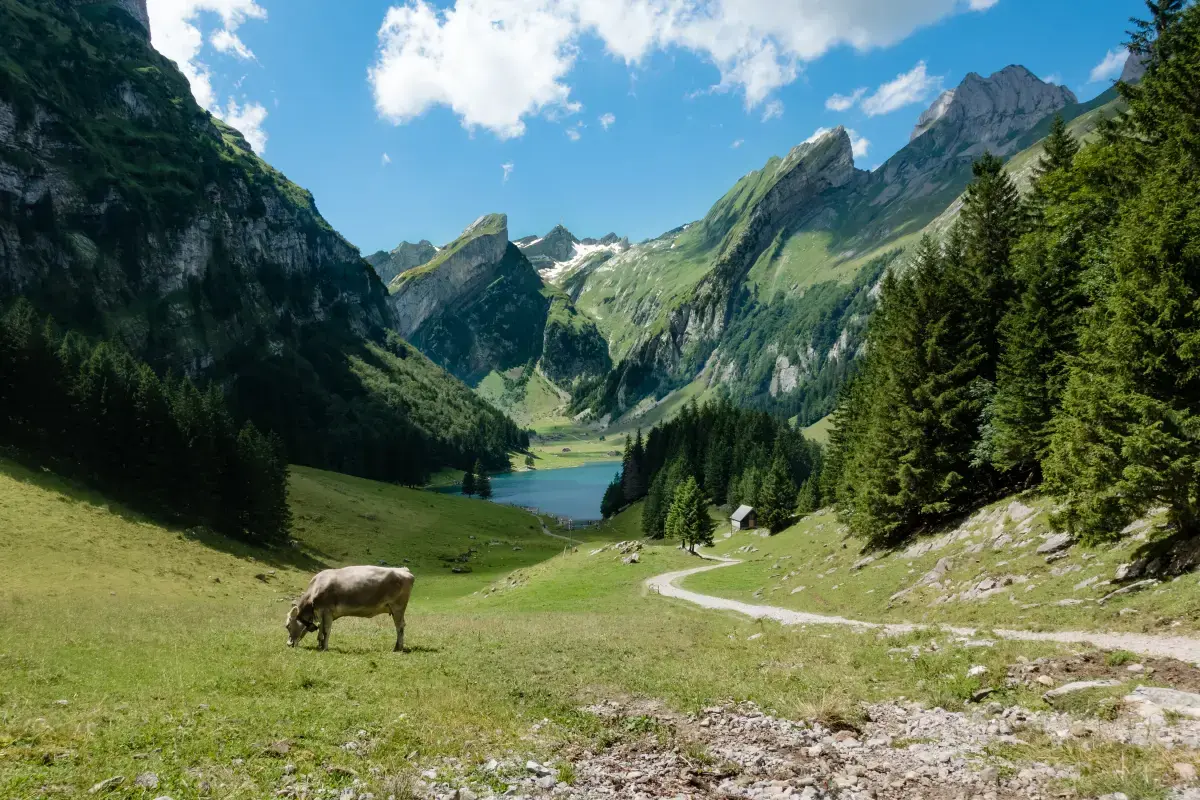
Where to Live in Switzerland
The most densely populated areas of Switzerland and the majority of jobs are found in the cities and urban areas of the country. The major cities in Switzerland are Zurich, Basel, Geneva, Lausanne, and Bern. These cities have a high concentration of businesses, shops, restaurants, and other services. The majority of Switzerlands population live in these cities, and this is also where most of the jobs are found. Zurich is the largest city in Switzerland and one of the most densely populated areas of the country. It is home to a number of companies and banks, and is one of the leading financial centers in Europe. Zurich is also home to a number of universities, research institutes, and event venues which adds to its economic importance. Basel is another important city in Switzerland, located near the borders with France and Germany. It has a significant international presence, and is home to a number of large pharmaceutical companies and research institutes. Basel also has a thriving service and industrial sector, and the banking industry is active in the city. Geneva is a major international center for finance and diplomacy, and is home to the headquarters of the United Nations and other international organizations. Geneva is also a hub for tourism, and has a number of stunning natural attractions. Lausanne is a city located in the French-speaking part of Switzerland, near the shores of Lake Geneva. Lausanne is home to a number of service businesses, banking firms, and educational institutions. Lausanne also has a strong tech industry, with an increasing number of start-up companies and co-working spaces. Bern is the capital city of Switzerland. It is home to a number of large companies and international organizations, as well as an active service industry. The University of Bern is one of the oldest universities in the country, and the city is home to a number of scientific and cultural institutions. In addition to the major cities, there are a number of other densely populated urban areas throughout Switzerland. In particular, the cities of Lugano, Lucerne, St. Gallen, and Winterthur are known for their economic importance. Each of these cities and urban areas are hubs for businesses and jobs, and a high number of jobs are located in these areas.

Sports & Recreation in Switzerland
Switzerland is a landlocked country in Western Europe known for its mountainous landscapes, stunning natural beauty, and diverse culture. The country is a popular destination for adventurers, skiers, and climbers. As a result, there is an abundance of sports and recreational activities available in Switzerland, both indoors and outdoors. Popular sports in Switzerland include skiing and snowboarding. There are over 200 ski resorts spread throughout the country, ranging from beginner-friendly slopes to more challenging terrain for more experienced skiers. Switzerland is also home to two of the best-known ski destinations in the world: St. Moritz and Zermatt. Hiking and mountaineering are also incredibly popular recreational activities in Switzerland. The country is full of scenic trails of all levels of difficulty, from easy walks in the countryside to high summits in the Alps. On these trails, you can admire Switzerland’s diverse flora and fauna, observe wildlife, and take in breathtaking views of the surrounding mountains. Switzerland is also known for its epic climbing routes. From alpine routes to multi-pitch climbs and bouldering spots, climbers of all levels can find something suitable. Many of these spots have become popular destinations for both local and international climbers. Other activities in this country include paragliding, cycling, golf, and even beach sports on the shores of Switzerland’s many lakes. Switzerland also has well-developed infrastructure for water sports, such as sailing, kitesurfing, and stand-up paddleboarding. You can even go scuba diving in a number of Switzerland’s lakes. Overall, Switzerland is a great place to explore, with plenty of outdoor sports and recreational activities available for all levels of fitness.

Cost of Living & Housing in Switzerland
The cost of living in Switzerland is among the highest in the world. Housing costs in Switzerland can be quite expensive relative to other countries, due to its popular location, high quality of life and excellent infrastructure. Accommodation costs can vary quite drastically depending where you look; smaller cities may be more affordable than larger cities. Generally speaking, apartment rental costs in Switzerland are the highest in Switzerland, followed by hotels, guest houses, and campsites. An average apartment costs are around 2,000-3,000 Swiss francs per month (CHF). Utilities costs such as electricity, water, heating, and telecommunications in Switzerland can add up quickly. In most cases, these bills will reflect the costs of the improving infrastructure and high quality of life that Switzerland offers. Transportation costs in Switzerland are also higher than most other countries due to the convenience of public transportation and the high quality of infrastructure. Gas prices also tend to be on the expensive side in comparison to other places. On average, food costs in Switzerland are more expensive than other countries due to import taxes, transportation fees, and other costs associated with deliveries of products. Generally, local produce and buying food in bulk can help reduce costs. Switzerland is a beautiful country with a high quality of life, excellent infrastructure, and gorgeous scenery. The cost of living can be expensive, but with careful budgeting and careful shopping, it is still possible to enjoy its many attractions without breaking the bank.
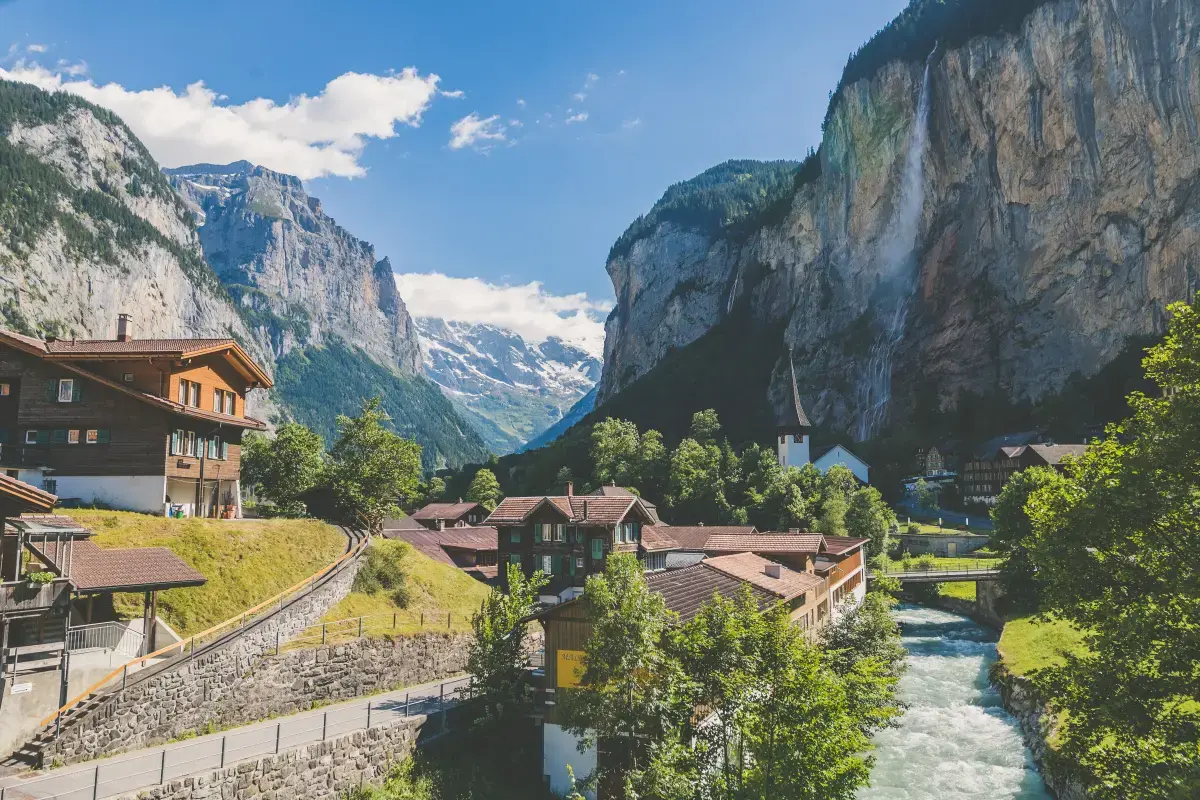
Finding a Job in Switzerland from Overseas as a Foreigner?
Use our Job hunting & job seeking guide to help your job searching easier.

The Best Rated Top 20 Recruitment Agencies in Switzerland
When searching for a Job from Overseas, reaching out to established Recruitment Agencies can help in your Job Search in Switzerland

What are the Best job boards in Switzerland
Jobseekers searching for jobs in Switzerland find the below job portals in in Switzerland as the best job websites for finding employment in in Switzerland
For more information about the best job boards in Switzerland
Best International Removals Companies to/from Switzerland
When the move to Switzerland gets closer, finding local and international removals companies that suit your requirements are critical. Find a list of the best companies Near You.

Expat info about living in
Don't just take our word for it.
Use the Best Forums in Switzerland to obtain all the independent advise about moving, living & working in Switzerland

Immigration Advice and Visa InformationSwiss
Need assistance with obtaining the correct Visas and Work Permits in Switzerland.
- Get expert advice to make the move to Switzerland as easy as possible

Find Trusted Local Home Services
When you arrive, understanding the Best Local Services to help with your odd jobs and tasks around the home is essential.

Best Areas to Live in Switzerland
Popular towns, cities and regions that are proving popular with migrants moving to Switzerland
Study and Higher Education in Switzerland
Search our list of all universities in Switzerland to help your reach your educational goals.
- Find the Best University in Switzerland that suits your needs

Featured Locations
Frequently Asked Questions
- Construction
- Business Analysis
- Web & App Development
- Animation
- Nursing
- Teaching
- Engineering
- Marketing
- Plumbing
- Carpentry
- Software Engineer
- Data Analyst
- Hospitality Staff
- Builders
- Full-time
- Part-time
- Permanent
- Freelance
- Gig Jobs
- Contract
- Weekend work
- Out of Hours
- Night shift
- Casual
- Temporary
- Remote
- Work From Home
- Work From Anywhere
- Telecommuting
- Flexible
See here for more Help & Support questions

